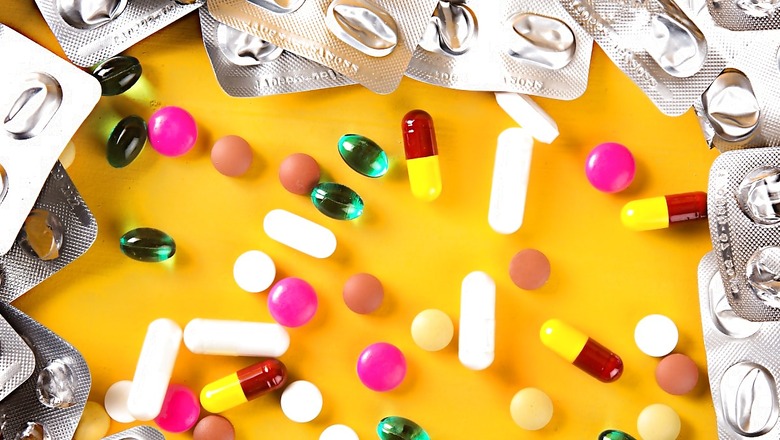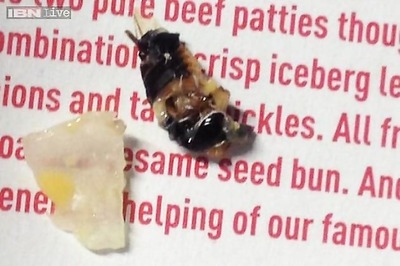
views
The long-pending move to make impurity standards for Indian medicines stricter is coming soon, News18 learnt. The Indian Pharmacopoeia Commission (IPC) is updating its rules to match global standards to check harmful elements in medicines – a significant shift from the current lenient checks on medicines, especially those sold locally.
The IPC – the body responsible for setting quality standards for medicines and their ingredients to ensure safety and efficacy – has sent a communication to drugmakers via their representative lobbies and multiple stakeholders, including all state drug controllers, directors of drug testing laboratories and officers at zonal and port offices.
“The IPC is in process to adopt elemental impurity requirements in line with other global pharmacopoeia," said the latest notice issued by IPC, seen by News18.
The impurity limits followed by Indian drugmakers, as per Indian Pharmacopoeia (IP), are less strict than those in the European and US Pharmacopoeias.
Pharmacopoeia is a book that outlines the basic quality standards for all drugs sold in the country. This book contains all the details of the quality, safety, and efficacy requirements for medicines and their ingredients and serves as a rulebook for drug manufacturing.
European and US standards follow guidelines from the International Council for Harmonisation (ICH), which many countries use. So far, the Indian regulator has been hesitant to adopt ICH standards due to various reasons, including the financial capacity of small and medium firms. However, now, India needs a makeover. “We are taking all steps required to send a positive message across the globe that India is a hub of drug manufacturing and exports. Hence, we need to follow ICH standards," said a government official privy to the development.
“Last year was not good for the Indian pharma industry as we saw multiple countries levelling allegations against made-in-India drugs. Now, big pharma companies, which already sell to countries that follow ICH standards, are requesting the government to push local firms to follow high standards."
The official added that upgrading to ICH will help big pharma companies to expand their business and fight the trust deficit in global markets.
WHAT ARE ELEMENTAL IMPURITIES? HOW DO THEY HARM PATIENTS?
According to the latest notice, ICH has been revised to decide the limits of some elementals. Hence, IPC is also revising the current guidelines on “elemental impurities" in line with revised global guidelines.
Elemental impurities in drug products can arise from several sources – they may be residual catalysts that were added intentionally in synthesis or may be present as impurities.
In simpler words, harmful metals in medicines can come from different places. They might be left over from chemicals used to make drugs, or they could come from the equipment used during production, the packaging, or even other parts of the medicine itself. Because elemental impurities do not provide any therapeutic benefit to the patient, their levels in the drug product should be controlled within acceptable limits.
These impurities, which till now, are treated leniently, also include toxic impurities, which can cause deadly diseases such as cancer as a side effect.
HOW INDIA PLANS TO IMPROVE STANDARDS
The Indian Pharmacopoeia Commission, as per the notice, has started working on replacing tests on heavy metals to make elemental impurities mandatory from the next edition of the Indian Pharmacopoeia – a book that outlines the basic quality standards for all drugs sold in India.
“IPC has also started discussions within the expert working group constituted for this subject beside publishing the proposed revisions on the IPC website for inviting public comments prior to their adoption in the IP 2026," said the notice sent by Dr Rajeev Singh Raghuvanshi, secretary cum scientific director of IPC and also, the drug controller general of India.
The notice concludes by urging the industry and government officials “to start working on required necessary changes in the quality systems for their readiness and ensuring compliance with the revised elemental impurities standards…"
LONG PENDING BUT WELCOME STEP: EXPERTS
While industry experts applauded the move, calling it ‘long pending’, they suspect that the pharma industry may struggle to upgrade and match global standards.
“(It’s a) good step, but I suspect industry backlash because they will really have to up their manufacturing standards now," said an industry expert, who writes extensively on drug quality and standards.
Public health activist Dinesh Thakur told News18 that the move is important for our country’s drug supply. “We are catching up with what is already accepted globally. In that sense, it’s long overdue."
“They should make this mandatory for all Ayush formulations too," he suggested.




















Comments
0 comment